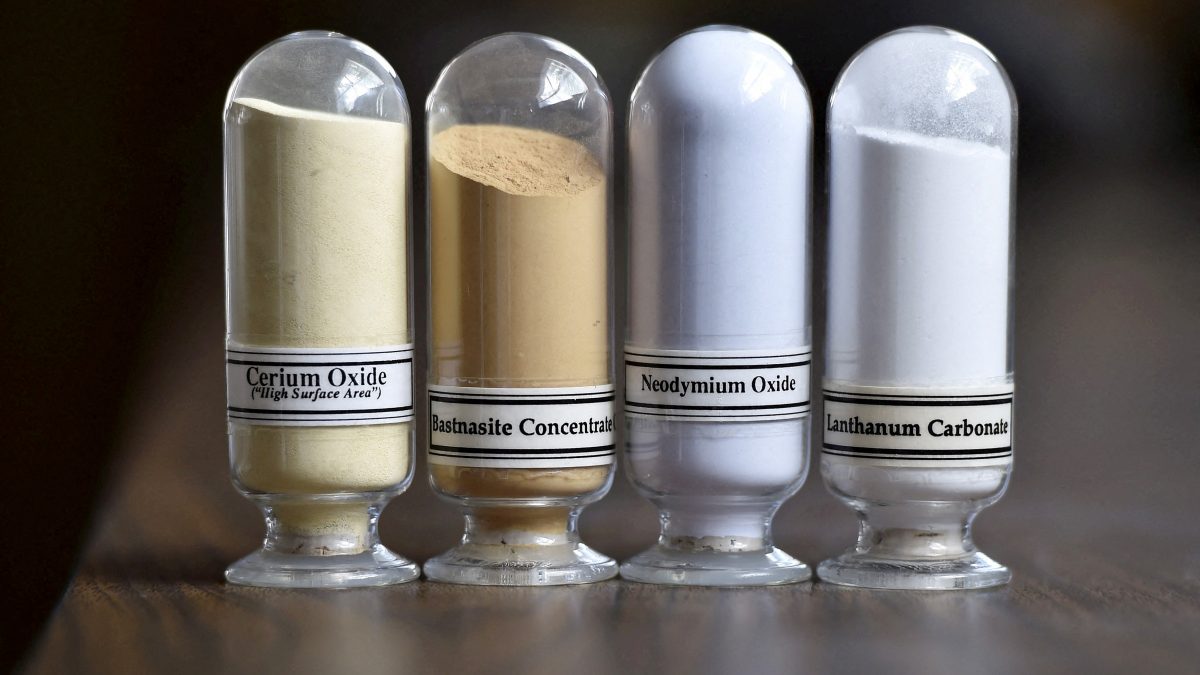Production of Apple AirPods at Foxconn’s Telangana facility has reportedly been affected due to a shortage of dysprosium, following China’s recent restrictions on rare earth exports, according to people familiar with the matter.
The Foxconn Interconnect Technology (FIT) plant, located in Kongara Kalan, about 45 km from Hyderabad, is part of Hon Hai Technology Group (Foxconn), a Taiwanese multinational electronics contract manufacturer, is a key supplier for Apple. FIT is listed on the Hong Kong Stock Exchange.
Foxconn said there is no disruption to production. The company began manufacturing AirPods at the India facility in April last year, as part of Apple’s broader strategy to diversify production beyond China.
AirPods include rare earth metals such as neodymium and dysprosium. Neodymium is mined in China and other countries.
A source cited said that Foxconn had alerted the Telangana government about the supply issue. The state government subsequently approached the Department for Promotion of Industry and Internal Trade (DPIIT).
“Foxconn has sought the state government’s help to get the end user certificate (EUC) certified and attested by central ministries,” the person said. The EUC is a formal document verifying the recipient and intended use of certain goods, particularly those with sensitive applications.
“Foxconn got the end user certificate from the ministry of external affairs and the Chinese embassy, as part of the process,” said another person. “After that, Foxconn’s supplier submitted it for approval (of dysprosium exports) to the Chinese government. But it is still pending, and the (Chinese) government has not given approval yet. Once that is done, the supplier will export the rare earth metal.”
Impact Shorts
More ShortsApple did not respond to queries, while Foxconn said it “has no comment on the issue,” reiterating, “There is no disruption to production.”
In India, Apple works with key suppliers including Foxconn and Tata Electronics. Globally, Foxconn is Apple’s largest contract manufacturer.
“There was indeed some slowdown in production at the Foxconn AirPods plant, but it seems to have improved now,” said another industry executive. “The supply chain for the metal is a bit longer, but the company is managing the situation now.”
“The Foxconn logistics team is expecting approval by the end of this month,” said the second person quoted earlier. “The stipulated time frame from the date of application for approval is 45-50 days. Foxconn is working with whatever rare earth metals and dysprosium are already available with them to extend the product cycle before they get the additional material.”
Industry flags cost, delays
The India Cellular and Electronics Association (ICEA) informed the Indian government that the export curbs were causing delays and increasing costs, as reported by Economic Times on July 18. Apple and Foxconn are members of the ICEA.
Earlier this month, reports suggested that Foxconn had repatriated over 300 Chinese engineers from its Indian iPhone production sites, reportedly under instructions from Beijing. While experts said these roles could be filled by Taiwanese engineers, they noted that replacing Chinese-sourced machinery and materials would be more difficult and could strain operations.
Rare-earth magnet exports to US surge
On July 18, China issued its first rare earth mining and smelting quotas of the year, according to Reuters. These quotas are seen as an indicator of global rare earth supply. China remains the world’s largest producer of the 17-element group, which is crucial for electric vehicles, wind turbines, robotics, and defense systems.
Despite its export restrictions on certain rare earth categories, China’s exports of rare-earth magnets to the United States rose to 353 metric tons in June, up 660% from May, reflecting shifting trade dynamics and strategic prioritisation.
China plays hardball with metals
In early April, China placed seven categories of medium and heavy rare earths, including samarium, gadolinium, terbium, dysprosium, lutetium, scandium, and yttrium-related items, under export control. The move followed US President Donald Trump’s tariff announcements, and analysts saw it as Beijing’s use of rare earth dominance as leverage in trade talks.
In addition to electronics, dysprosium is used in laser targeting systems, military communication technologies, and in improving the temperature resistance of neodymium magnets. These properties make it essential for maintaining the performance of critical equipment in extreme environments.
)